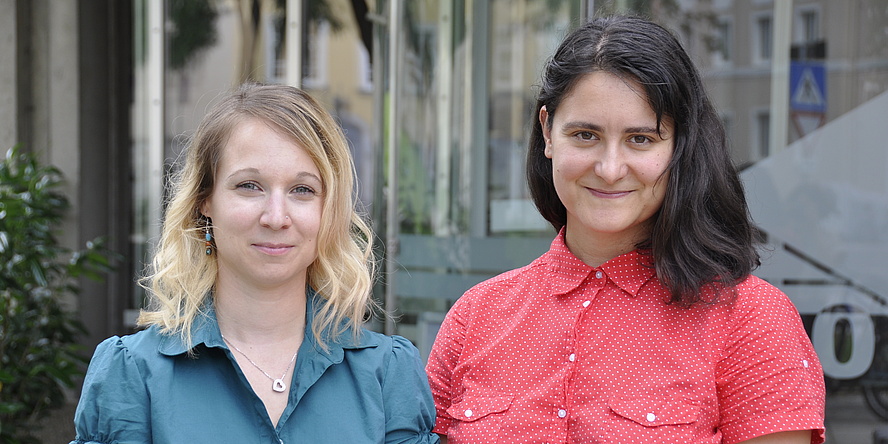Martina Köberl
Martina Köberl from Styria completed her master studies of molecular microbiology followed by a doctoral programme in molecular biosciences and biotechnology at TU Graz. As an Erwin Schrödinger scholarship holder, she currently has a postdoc position in Gabriele Berg’s team at the Institute of Environmental Biotechnology of TU Graz. During her scholarship, Martina spent one year working in Janet K. Jansson’s team at the Pacific Northwest National Laboratory in the USA, which will now be a cooperation partner in the new project. In her doctoral thesis (2013) written at TU Graz, Martina studied the influence of bacteria that are present in the soil and the roots of plants (rhizobacteria) on the production of phytochemical with phytotherapeutic benefit.Martina’s Firnberg project "Bridging metabolome and microbiome diversification" aims at determining whether and how the chemical profile of a plant can be controlled by means of plant-associated microorganisms. She has chosen two Asteraceae medicinal plants as model plants that are cultivated world-wide and stand out with their particularly rich metabolism of phytotherapeutically active chemical compounds. Using these model plants, she will study the connections between the microbial community (plant microbiome) and the plant metabolism (metabolome). In her research project, Martina will use new “meta-omics” technologies to analyse plants with their microorganisms from natural eco systems and from specifically developed lab systems. In addition to that, she intends to develop a model for the prediction of metabolite production. This could contribute to better and more targeted use of plants as bio-resources for substances that are of therapeutic and biotechnological relevance.
Kostadinka Lapkova
The native Bulgarian received her master‘s degree in mathematics at Sofia University in Bulgaria, and completed her PhD in mathematics in the area of Number theory at the Central European University and at the Alfréd Rényi Institute of Mathematics of the Hungarian Academy of Sciences in Budapest, Hungary, in 2012. She is currently working as a postdoc at the Alfréd Rényi Institute of Mathematics of the Hungarian Academy of Sciences. For more than four years, however, the mother of a three-year-old daughter has been living in Vienna, and was awarded a „Back-to-research“ grant of the University of Vienna for 2014."Graz, with the research groups from TU Graz and University of Graz, is probably the most important number-theoretic centre in Austria. Sharing common research interests, I received the support of Professor Christian Elsholtz and Professor Robert Tichy from the Institute of Analysis and Number Theory at TU Graz. I have also visited the city a few times before and I really enjoy being here," says Kostadinka Lapkova.
Her project "Power-free values and number of divisors of polynomials" focuses on two classical problems from analytic number theory. The first one is the problem of estimating the number of power-free values of polynomials of two variables, including when the two arguments are prime numbers. This field is important for estimating for example square-free values of polynomials, which have importance in cryptography, without which the security of the modern digital world is unthinkable. The second topic of this project is the problem for the average number of divisors of polynomials, for which there are conjectured magnitudes of growth, but up to now none of these conjectures have been fully verified for polynomials of degree higher than two. At the same time the divisor problem has many implications, including in the recent breakthrough problem for small gaps between primes.

